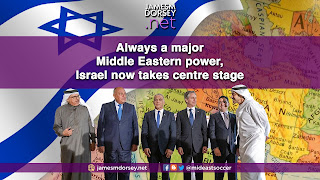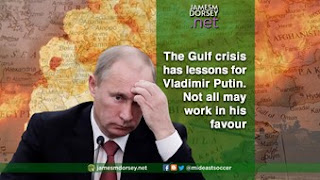Always a major Middle Eastern power, Israel now takes centre stage

By James M. Dorsey A straightforward message emerged from this week’s meeting in the Negev desert of the foreign ministers of four Arab countries, Israel and the United States: Israel is key to the security of Gulf autocracies and continued US engagement in the Middle East. It may be a message that on the surface holds out the promise of reduced regional tension, the beginning of a rejiggering of the region’s security architecture, and the Middle East’s increased ability to fend for itself increasingly. A look under the hood suggests that there may be less to the façade the foreign ministers of the United Arab Emirates, Egypt, Bahrain, Morocco, Israel, and the United States are erecting. What emerges from the lifting of the hood is that Gulf states, including the UAE, once described as ‘Little Sparta’ by former US Defence Secretary Jim Mattis because of its military prowess, are unable to defend themselves against external threats despite being among the world’s foremost buye






